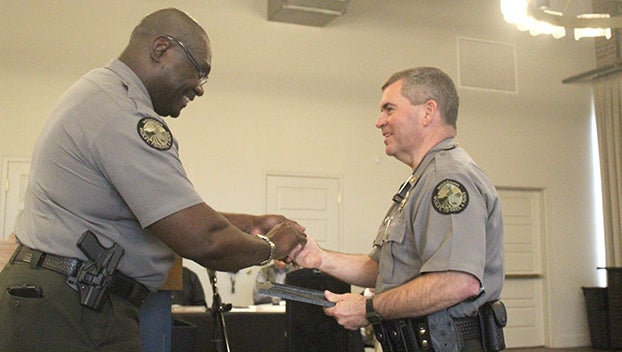Nov. sees big spending in Brookhaven
Published 9:35 pm Thursday, December 27, 2018
The latest sales tax report shows local dollars are starting to move in Brookhaven.
New sales tax diversion data from the Mississippi Department of Revenue shows the City of Brookhaven still slightly behind on year-to-date collection totals, but the amount of tax dollars reported in November was more than $21,766 to the plus over the same month last year, enough to rank the city No. 28 out of 308 reporting municipalities in that category. The city’s $497,562 total last month was also more than $42,000 better than October this year, with those tax percentage numbers representing a total local spending increase of around $600,000 from Halloween to Thanksgiving.
November’s tax report totals represent local spending of around $7 million that month. So far in Fiscal Year 2019, which began on July 1, the city has collected $2.36 million in sales taxes, which trails totals for the same time period last year by only $20,000.
The city cut its trailing amount in half from October to November, and though it still ranks low in overall state rankings when comparing which cities are ahead or behind thus far in the fiscal year — No. 298 of 308 — Brookhaven is holding its own with neighbors and cities of comparable size statewide.
The city led both McComb and Natchez in collections last month, bringing around $60,000 more than McComb’s $438,078 and Natchez’s $434,931. While Brookhaven eclipsed collections for the same month last year, both neighboring cities were well below that mark.
Brookhaven is also leading its neighbors in year-to-date collections, with McComb having taken in $2.27 million since July 1 and Natchez $2.13 million. All three cities are trailing their year-to-date numbers from 2017, however, with McComb about $12,000 further in the hole than Brookhaven and Natchez behind by only $5,000.
The City of Richland leads the five-member group of cities similar in population to Brookhaven after collecting $507,371 in November. It trails Corinth in year-to-date collections, with the northern city’s $2.55 million in collections hovering just over Richland’s $2.52 million.
Corinth’s November collection totals of $497,574 are better than Brookhaven’s numbers for the same 30 days by a trip to the salad bar — $11.83. Corinth leads the pack in besting previous year-to-date figures, having brought in more than $82,000 over 2017 so far this year.
The City of Greenwood collected $377,057 in November and has brought in $1.87 million so far in the fiscal year, trailing its last-year totals by less than $10,000. Grenada collected $366,994 in November and enjoys a healthy $61,000 total over previous year-to-date collections.
The City of Cleveland brought in $325,761 in November and is $22,155 behind in year-to-date collections.
Naturally, the big cities are bringing in the most dollars. The City of Jackson collected $2.43 million in November, followed by Gulfport at $1.85 million, Hattiesburg at $1.84 million and Tupelo at $1.74 million. Biloxi, Meridian, Ridgeland and Southaven all brought in better than $1 million last month, though Ridgeland lost around $50,000 between October and November.
Gulfport leads the state in beating year-to-date totals and is the only municipality to go over the half-million mark, with its so-far total $9.37 million standing over last year’s total by $517,501.
Philadelphia is the state’s biggest loser so far this fiscal year, down more than $92,000.
On the whole, the 308 reporting municipalities statewide collected $36.86 million in November, which represents total spending in the neighborhood of $520 million. The Magnolia State has taken in $184,919,678 since July 1, a total that exceeds the same period last year by more than $5 million and represents around $2.6 billion in spending.
Sales taxes have a three-month cycle. Taxes are collected by retailers in the first month, paid or reported to the state in the second month and diverted back to cities in the third month. The DOR report is based on the second month.
Mississippi’s sales tax rate is 7 percent, though some cities tack on an additional 2 percent tourism tax on hotel room rentals and restaurants.





